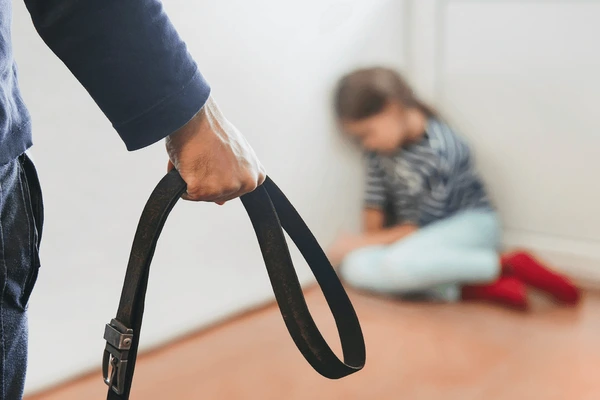In many circles, domestic discipline is a subject of interest, controversy, and thoughtful conversation. Regardless of whether this is the first time you are coming across the term, or you have done some research into the philosophy before, one thing is true – it is not a one-size-fits-all topic. This lifestyle choice has sparked a new interest in modern life, and in the digital age we are living in, couples try to carve out their way in what their relationship will be like.
It leaves me to wonder what exactly domestic discipline is and why it’s so fascinating to so many.
What Is Domestic Discipline?
Domestic discipline is an arrangement of a lifestyle or relationship in which one partner has a dominant and leadership role (the Head of Household (HoH)) over the other. The submissive partner agrees to submit to the authority of the HoH. This structure usually comes with ground rules, along with consequences if those ground rules are broken.
In most domestic discipline relationships, the couple has previously agreed that the HoH is allowed to discipline his/her partner via non-abusive disciplinary spanking or similar mild punishment, when the rules are disobeyed. It is a process enacted with respect, consent, and communication.
The difference is clear: domestic discipline is NOT abusive behavior. This dynamic is rooted in trust, agreements, and communication. Either way, each party ought to understand the structure and boundaries of a relationship and be in full agreement that the acknowledged arrangement functions best for them.
The Why Behind The Domestic Discipline

There is a common misconception that domestic discipline is old-fashioned or only motivated by strict control. This stereotype is as far from the truth of how most couples who live this lifestyle are as possible. Many contemporary relationships use domestic discipline as a tool of structure, emotional connection, and growth.
To others, the appeal is in the defined roles and responsibilities within the relationship. Some people may find solace in that some boundaries and expectations are set. Because rules, consequences, and emotional needs have to be communicated between partners regularly, you may find that a domestic discipline lifestyle causes more direct discussions regarding these issues, which can lead to fewer misunderstandings.
Domestic discipline also creates intimacy, couples report. It requires honesty and rawness that most modern relationships can’t manage. But, done well, it can be bonding, creating a high level of trust and safety in each other’s emotions.
READ MORE
Top 10 Must Read Self Discipline Books
50 Powerful Time Management Quotes to Boost Your Productivity
Consensual and communicative nature of its role
Domestic Discipline, in a nutshell, is built on consent. And that’s the underpinning for the whole dynamic. Before doing something like this, both partners need to sit down and have long discussions about what they expect, what their limits are, and what the partners will get out of it.
This includes talking about what kind of rules will be established, what behaviors will be corrected, and what kind of punishments are allowed. These are conversations that should happen periodically, as needs and levels of comfort change with time.
Any other partnership changes the relationship. Things that worked a year ago probably won’t work now. So the couples who practice domestic discipline have to be committed to check-ins and conversations on a semi-regular basis. This harbors a commitment to prevent the toxic relational DNA from taking root, and serves as protection over both parties to make sure everything stays healthy, consensual, and gratifying.
Common Misconceptions About Domestic Discipline
Sadly, there is much stigma attached to surviving domestic discipline. To those outside the lifestyle, the difference between D/s and some sort of control, abuse, or archaic gender roles can become blurred. However, domestic discipline is none of those things if done by agreement and with respect by both parties.
A common myth is that domestic discipline is always boy-led. The vast majority and certainly the relationships that are discussed on forums are in the traditional male HoH mode, but there are a good number of female-led domestic discipline relationships as wellᅚ. These are not the roles of gender but of who is more qualified to lead in that type of relationship.
Another myth is that this method is unequal. Most couples discover that their relationship becomes much more equal because they have clear expectations. Every partner knows where he/she stands, what is expected, and how problems will be dealt with. There can be less guesswork and no unspoken resentment.
The Practical Side of How Domestic Discipline Works

You may be asking yourself how this works in practice. Domestic discipline relationships differ from couple to couple. Still, there is a simple system behind all of them, encompassing rules to be observed, punishments for breaches, and benefits for good observance.
So, for instance, they could agree that the submissive has to follow the guidelines of behavior (e.g,. respectful arguments, completing chores, or avoiding risky behaviors such as overspending or speeding). Should these rules be broken, the HoH may issue an agreed-upon punishment, such as a spanking, corner time, or the temporary loss of certain privileges.
This might sound inflexible, but this is something that most couples find to be very liberating. They frequently share that the clarity and structure alleviate stress and conflict. Knowing that there is a way to deal with a misbehaving toddler, without reinforcing bad behavior or leaving lingering animosity, can make for a much more harmonious home.
Emotional Benefits of Domestic Discipline
Domestic discipline isn’t just about behavioral structure — it can provide really deep emotional reward, too. The trust required in this lifestyle builds a deep emotional connection between many couples. The follower must trust that the leader will care when they hold the position, and the leader must be sensitive and responsible when entering that role.
The outcome is usually emotional intimacy that most couples spend a lifetime hunting for in more traditional couples. You also feel secure in your relationship thanks to the clarity of roles and expectations in the relationship.
This is more than reforming our wrongdoings; Such knowledge can support both partners in feeling recognized, listened to, and valued in the partnership. This framework allows for constant emotional check-ins and an easy way to talk about what’s working and what’s not.
Challenges and Criticism
Domestic discipline has its challenges, however! As is true for all life paths, it takes consistent work, self-awareness, and mature communication skills. It is common for misunderstandings to occur, and if your discipline is managed incorrectly, it may also lead to resentment or hurt feelings.
This is why domestic discipline must be practiced with emotional awareness and non-ambiguous limits. If either partner begins to feel uncomfortable or uncertain, hit pause and discuss those feelings with one another. Consent and communication should always be the priority.
Those who criticize domestic discipline say that it reinforces archaic power structures. But people who are in the lifestyle are going to tell you that it’s far more complicated. The majority of couples view it as a partnership where both play meaningful, respected roles.
Are YOU The Right Fit For Domestic Discipline?
Try Domestic Discipline in Your Relationship. This is a very personal decision. Not everyone will like it, and that is okay. However, for couples who yearn for a bit of structure, intimacy, and clarity surrounding their partnership in life, it can be a beautiful adventure.
If you are interested, research it in the beginning. Find blogs to read, podcasts to listen to, and most importantly, have open and honest communication with your partner. Domestic discipline should be built on respect, maturity, and the desire to improve each other.
The aim, though, is not to control but to connect. Domestic discipline should never cause either one or both partners to feel less secure, less connected, or less empowered in the relationship.
Initiating the Discussion with Your Partner
The thought of introducing domestic discipline to your partner can be terrifying. That’s normal. It does frame the conversation in curiosity and mutual benefit. Say instead, “I would like to discipline you.” Try “I have been exploring domestic discipline and would like to know if that could help bring more structure and intimacy to our relationship?
Instead, concentrate on what you like or think would strengthen your relationship. Listen to the input and make your norm feasible. Your partner may not agree right off the bat, and that is ok. Let them take the time they need to process and come to their conclusions.
Keep the communication open, respectful, and low-pressure – that is the goal. Simply put, domestic discipline only works if both partners are a full 100% on board.
Growing Together Through Domestic Discipline

Even if you and your partner choose to venture into this lifestyle, it is something that will develop over time. In the process, you will also understand a great deal about one another. It can be clumsy and uncomfortable, and at times messy, but that is the nature of an excellent, healthy dynamic.
Take time every so often to see how everything is shaping up. Discuss what’s going well and what has to be different. Create room for one another to fully share your feelings. It is this sort of communication that elevates domestic discipline from a discipline to a vehicle for personal development.
Some couples notice that, over time, they feel more connected to each other, have less stress, and can align with each other better and quicker. And that is the magic of designing a relationship structure that works for you, and not a societal definition of what is normal.
Final Thoughts on Domestic Discipline
This is a little bit of a complex subject, but domestic discipline can be interesting. It’s not for everyone, but for those who approach it mindfully and respectfully, it can offer a different route into intimacy, trust, and emotional connection. It is a double-edged sword, and when the dynamics include consent and communication, it can be a force for personal growth and relational harmony.
If this is you, and you are interested in domestic discipline, explore away! But keep in mind — this lifestyle is built on respect for every party involved, love, and a striving for a better, more open relationship. That’s something worth talking about.






